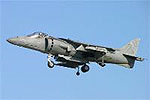Decision time for Amos following Bastion attack investigation
 Marine Corps Commandant Gen. Jim Amos will soon decide what actions to take after receiving the results of an investigation into how a spectacular and deadly attack on a U.S. base in Afghanistan occurred last fall, Marine officials said Tuesday.
Marine Corps Commandant Gen. Jim Amos will soon decide what actions to take after receiving the results of an investigation into how a spectacular and deadly attack on a U.S. base in Afghanistan occurred last fall, Marine officials said Tuesday.
The commandant asked in May for the investigation into the Sept. 14, 2012, attack on Camp Bastion, saying that he wanted to determine whether Maj. Gen. Charles “Mark” Gurganus, the top commander in southwest Afghanistan at the time, or other members of his staff were negligent.
The attack occurred on one of the largest bases in Afghanistan. Fifteen insurgents are said to have staked out the base for weeks before cutting a fence on its perimeter and going on a six-hour rampage inside, killing two U.S. Marines, wounding eight other personnel and destroying six AV-8B Harrier jets. The incident marks the single greatest loss of U.S. military aircraft since the war in Vietnam, and one of the most brazen security insides on a major base in Iraq or Afghanistan.
Marine officials said Tuesday that Amos requested the investigation after concluding that earlier reviews “did not sufficiently address commander accountability.” The commandant wanted to get a more accurate picture of what occurred and “whether any U.S. personnel are accountable for the lives and equipment lost.”
Killed in the attack were Lt. Col. Christopher Raible, 40, and Sgt. Bradley Atwell, 27. Raible was the commanding officer of Marine Attack Squadron 211, the Harrier squadron deployed at Bastion, and is credited with leading a counterattack that ultimately cost him his life. He was posthumously nominated for the Silver Star, the nation’s third-highest award for combat valor. Atwell was with Marine Aviation Logistics Squadron 13, and reportedly killed by a rocket-propelled grenade that night.
“My thoughts and prayers continue to be with the families and friends of the Marines of Marine Attack Squadron 211, and Marine Aviation Logistics Squadron 13,” Amos said in the news release Tuesday. “This heartbreaking loss continues to remind me of the sacrifices our Marines, sailors and families make in protecting our freedom. It is also a reminder of the very high standards our Marine commanders must meet, particularly in combat.”
Hundreds of Marines and other coalition forces scrambled to find and kill the well-trained enemy fighters after they breached the wire at Bastion under cover of darkness, opening fire on parked aircraft, military personnel and civilians. Marine officials have credited the quick response with preventing a precarious situation from getting worse, but some have criticized commanders’ perceived complacency for allowing the attack to occur in the first place.
The attack was particularly striking because of where it occurred. Camp Bastion abuts Camp Leatherneck in Helmand province. Together they form a single, fortified base that is home to more than 10,000 deployed coalition troops. It serves as the main hub of British and U.S. Marine operations in Afghanistan. Along with Camp Shorabak, an adjacent facility for Afghan forces, the complex covers about 36 square miles in Helmand’s desert, Marine officials said.
Gurganus, the commander of I Marine Expeditionary Force (Forward) and Regional Command Southwest last year, has defended the decision-making ahead of the attack, saying changes were constantly made to keep the enemy off balance.
“You do your best to cover all the bases, but you concentrate primarily on what your primary threats are and what is most likely, even while you’re guarding against what is the most dangerous,” Gurganus told reporters in April during a breakfast with journalists in Washington.
The Washington Post reported in April that the towers closest to where the insurgents breached were unmanned the night of the attack. Gurganus also had approved reducing the size of the force patrolling outside Leatherneck and Bastion one month prior to the attack as the U.S. drew down forces across Afghanistan, Marine officials told the Post.
Deborah Hatheway, Atwell’s aunt, told Marine Corps Times on Tuesday that she wants Gurganus held accountable. Considering the flaws in security, she said, someone was clearly negligent.
“You’re in Afghanistan, for God’s sakes,” she said. “Where is there anywhere in that country that isn’t violent?”
After the attack, Gurganus decided not to launch a full investigation that could have led to discipline for U.S. personnel because Bastion was run by British forces, rather than Americans. Amos disagreed with that decision, the Post reported.
Gurganus was nominated in March to pin on a third star and become chief of Marine Corps staff at the Pentagon. That assignment has been kept on hold pending the results of the investigation.
Other Marine commanders with oversight in the region at the time include Maj. Gen. Gregg Sturdevant and Col. Stephen Sklenka. Sturdevant led aviation operations across the region as commander of 3rd Marine Aircraft Wing (Forward). Sklenka led the Corps’ logistics component in Helmand, Combat Logistics Regiment 15. Gurganus’ deputy commander with I MEF (Forward) was British Brig. Gen. Stuart Skeates.
Amos’ request for an investigation in May came as he cracked down on accountability for commanders across the Corps. At least seven Marine commanders, from captain to colonel in rank, have been relieved for cause since mid-March. In each case, general officers have cited only a loss of confidence as the reason.